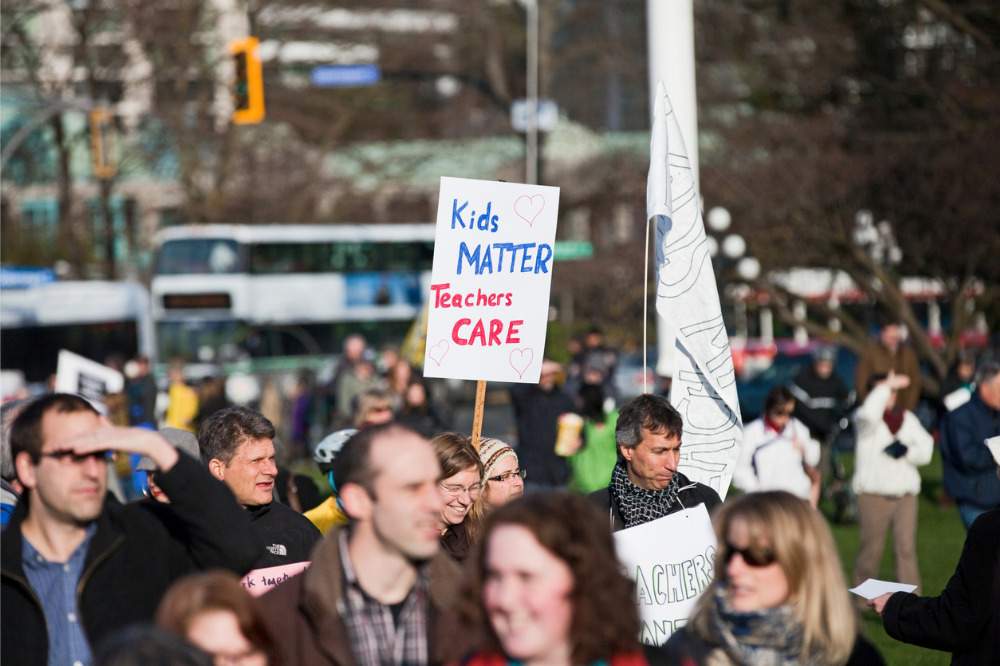
Teachers at Concord High School and Kandos High School walked off the job today and are calling on the Education Department to urgently deal with the staffing crisis at their school and hundreds of other schools across the state.
The move, by NSW Teachers Federation (NSWTF) members at both schools, comes amid heightened concerns over teachers’ pay and conditions.
In February, the first major investigation into the NSW teaching profession since 2004 warned that unless greater financial and human support is given to teachers, the state’s education system faces its most severe crisis in decades.
The 200-page report, written by an eminent panel chaired by former WA Premier Dr Geoff Gallop and released over the weekend, collected more than 1,000 submissions from teachers over a 12-month period.
The report’s authors say a combination of “constant policy changes”, massive increases in student needs, rapid changes in technology and new compliance and reporting responsibilities and higher community expectations of what schools and teachers can do have coalesced to create a crisis that cannot be ignored.
Speaking on the walkout at Concord High School, NSWTF deputy president, Henry Rajendra, said the school had been unable to staff all classes at the school because of multiple unfilled teaching vacancies.
"The state-wide teacher shortage has resulted in some classes at Concord being taught by different teachers over several weeks," Rajendra said.
"This also forces teachers to teach outside their subject area, teach combined classes or leave students under minimal supervision."
Rajendra said that despite being placed under “extreme pressure” attempting to staff classes and concentrate on providing high quality lessons, there is little support from the NSW Government or the Education Department.
“They have failed to address the teacher shortage to the extent that the school may now have to cut some HSC courses because of the staffing crisis”.
Rajendra said teachers at Concord High were calling on the NSW Government to ensure every class was staffed with a consistent and appropriately qualified and subject-trained teacher.
"This staffing crisis has been caused by the failure of the NSW Government to address the teacher shortage over more than a decade,” he said.
"They have let down students, parents and the wider community."
Rajendra said previously successful processes that ensured adequate staffing of all schools across the state have been weakened.
"The recent Gallop Report showed that the recruitment and retention of teachers will require a significant increase in salaries,” he said.
Professor John Buchanan, University of Sydney Business School, said increasing salaries by 15% would restore teachers’ pay relative to that earned by the average professional to that which prevailed 30 years ago.
However, he says this must be accompanied by solutions to the problem of the teacher’s compressed wage structure.
“Top teachers need to be paid significantly more,” Professor Buchanan told The Educator.
“Compared to nearly all other professionals in Australia, experienced teachers are paid significantly less than experienced lawyers, engineers and ICT professionals”.
Professor Buchanan pointed out that these professionals have significantly higher rates at the top of the scale – in the range of 30–50% higher than those at entry level.
“As such, change needs to occur at two levels: the average paid to all teachers to rectify the historic slide in pay compared to all professions and a new, higher paid classification to the most skilled and experienced in the profession,” he said.
“Increasing the top wage rate would have the effect of increasing the attractiveness of teaching as a lifetime career and greatly increase the likelihood that the best teachers will be retained in the future”.


